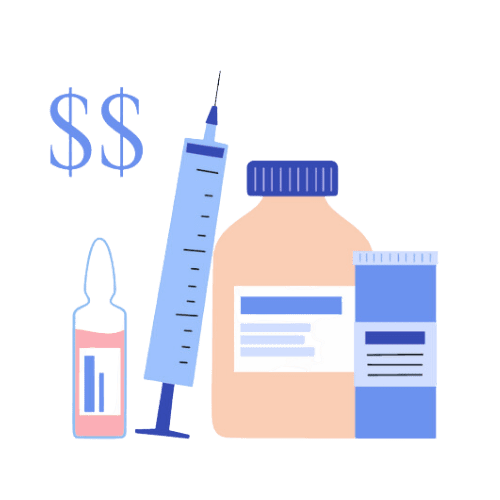Egg Freezing & IVF in Argentina
At Zora Health, you are our top priority. We’re here to guide you through every step of your egg freezing or IVF journey — helping you understand your options, and make confident, informed decisions about your care and costs.
Egg freezing, also known as mature oocyte cryopreservation, is a method used to save women’s ability to get pregnant in the future.
In vitro fertilisation (IVF) is a procedure used to help with fertility, prevent genetic problems and assist with the conception of a child

Spread out the cost of treatment over 12, 24, and 36 months to avoid large upfront payments and reduce financial burden.
LEARN MORE
Accessible & affordable fertility care in Argentina
Egg Freezing and IVF in Argentina
Every adult is entitled to have in vitro fertilisation (IVF), sperm and egg freezing and donation, and surrogacy in Argentina. Here is a country that does not care about how old a man or woman is, whether they are single or married, lesbian, gay, queer, or have genetic or infertility disorders. Argentina would still give everyone a chance to have a baby. For medical tourists, Argentina has a law where a baby born through a surrogate can be legally registered under the names of their intended parents within weeks after birth. The estimated cost of basic IVF is USD 4,300 egg freezing is USD 2,700.
All About Argentina for Medical Tourists
Argentina has some of South America's oldest and most enduring medical schools. It's home to the second recipient of the Nobel Prize in Medicine, physiologist Bernardo Houssay. The ideal ratio of doctors and patients, which the WHO defines as 1 doctor to 1,000 patients, is the norm in Argentinian healthcare. The government also has allotted a huge budget for medical care. Topnotch hospitals are usually located in the prime areas of Buenos Aires, Cordoba, and Mendoza.
You might as well take advantage of the culture and must-see attractions in Argentina while staying for fertility treatments. If you like ballroom dancing, don't miss to dance the night away to the tango at a milonga or traditional tango dance hall. Be prepared to be up all night for these halls usually open at midnight. Go on a wine-tasting tour and savour Malbec and white Torrontés, the two top Argentine wines, in Salta and Mendoza. Indulge in the gustatory delights of asado (barbecue), chorizo (pork sausage), alfajores (shortbread biscuits), and pasta frola (fruit tart) with dulce de leche caramel.
If you're an avid sports fan, book fútbol (football or soccer) tickets at the stadium of La Bombonera in La Boca, Buenos Aires. A climbing or bike/horse ride up the mountains of Patagonia would take you to a surreal wonderland. Lastly, be in awe of the largest waterfall collection in the world, the Iguazú/Iguaçu Falls. It's even double the height of the famed Niagara Falls!
For a seamless visit to Argentina, remember to adapt to their local customs and laws. You would be considered rude if you ate in the streets, yawned in public without covering your mouth, and arrived at a social event on time. Expect not to receive change that is less than or equal to 50 centavos. Always tip your server 10% of your bill at restaurants and give 1 peso for each bag carried by a porter at the hotel. Share your tea, called mate, clockwise-style with locals and fellow tourists. Never talk about politics, especially avoiding any mention of England, the Falkland Islands, the military junta, and the Perons.
When staying in Buenos Aires, Mendoza, Cordoba, and other areas, take the trains for long-distance travel. You can choose your comfort level when buying your train tickets: the humblest ticket is the Primera; the standard is the Pullman; and the Camarote is for a more comfortable two-person private cabin. Ride the Colectivos buses within the urban cities. Foreigners need to have the SUBE smartcard to ride the oldest South American subway--the Buenos Aires subway. To eliminate the language barrier problem, you can easily book an Uber to get to your next location because the usual taxi drivers can have difficulty speaking English and other non-Spanish languages.
According to a 2021 study in JBRA Assisted Reproduction, the youth of Argentina from 18 to 35 years old often forget what they learn online about fertility treatment awareness after half a year. Having said that, a vast majority of 90% are aware of egg freezing, more than half of them are knowledgeable about the Argentinian ART laws, and 60% want to be parents, preferably before the age of 35 (45%) and 40 (43.2%). They said that the three major problems towards achieving parenthood are money difficulty (58.4%), interference with career goals (55.1%), and difficulty in finding the right mate (43.6%).
Spanish is the official language, while Arabic, Italian, German, English, and French come next as common languages spoken.
Benefits of Doing Fertility Treatments in Argentina
The regulation for assisted reproductive technology (ART) treatments has first taken effect in 2010. The Argentinian government subsidises IVF and egg freezing for citizens under the 2013 fertilisation law. It says that every person has a right to have children and that it recognises that infertility is a medical problem that must be addressed. ART access is thus given to any adult Argentinian of whatever age, marital status, or infertility history.
Fertility treatments in Argentina have very high success rates. The medical facilities are modern and sophisticated, fertility specialists have commendable skills, and technologies are revolutionary. There are several medical centres and private healthcare facilities that specialise in reproductive medicine treatments such as IVF treatment, egg donation, intracytoplasmic sperm injection, preimplantation genetic testing, embryo transfer, egg retrieval, and other services.
Cegyr-Reproductive Medicine and Genetics
One of these fertility clinics is Cegyr-Reproductive Medicine and Genetics which is located in Buenos Aires, Argentina. The clinic's reproductive endocrinologist and embryologist team is seasoned with years of solid experience. It places a high value on respecting the reproductive rights and personal autonomy of all their patients. The fertility clinic also prides itself in using specialised tools. One of these is the AI embryo selector and time-lapse-integrated incubator that helps visualise each unique embryo development.
Another is the sperm selection device that determines the healthiest sperm sample and stimulates the cervical and uterine areas to facilitate better natural fertilisation chances. The fertility clinic also uses a tool that predicts the pregnancy likelihood of women who want to postpone motherhood.
Fertility Argentina
Dr Demián Glujovsky would personally take charge of your whole treatment from start to finish at Fertility Argentina. The famous doctor has written about 50 articles in prestigious scientific journals and peer-reviewed journals and is considered a reproductive medicine expert researcher and specialist. Besides the standard IVF cycle, Fertility Argentina uses state-of-the-art technologies such as the Tunel or sperm DNA fragmentation assay to predict the DNA integrity of semen samples, the Annexin V Columns (MACS) to also assess and eliminate DNA-damaged sperm, ZyMot chips to select actively swimming sperm and prepare them for intracytoplasmic sperm injection (ICSI) insemination, and preimplantation genetic testing (PGT-A) with next-generation DNA sequencing (NGS) to pinpoint possible chromosomal disorders.
The patient testimonials page on the website of Fertility Argentina fertility clinic is teeming with countless success stories of patients coming to their clinic who are forever grateful for their fertility journey.
Costs to Consider
Other Considerations Before Starting Your Fertility Treatment in Argentina
IVF
IVF is allowed for any adult of whatever age, marital status, gender identity and expression, or infertility history.
Egg Freezing
Oocyte preservation is legal in Argentina.
Sperm and Egg Donation
Receiving donor eggs and/or donor sperm is allowed.Sperm and egg donors are anonymous.Children born through sperm or egg donation, or both, are legally entitled to find out who their biological parents are when they are 18 years old and above.
Surrogacy
Surrogacy is allowed for heterosexual couples, married or not, the LGBTQ+, and singles.Surrogates are allowed to accept payment.Suggoracy is fully covered by health insurance.Under a 2017 provision on the Surrogacy Agreement in Argentinian law, a child born through a surrogate automatically acquires Argentinian citizenship at birth but can have the intended parents' names on their birth certificate 20 to 30 days after birth.Why Choose Argentina for Your Fertility Treatment
Argentina has liberal laws on fertility treatments. The government recognises infertility as a medical problem that needs addressing and support. It generously subsidises IVF and egg freezing for Argentinian citizens regardless of age, marital status, sexual orientation, or medical history. The success rates are very high, the doctors are very skilled, and technologies are cutting-edge in Argentina. They use specialised tools such as AI embryo selectors, incubators with time-lapse visualising technology, sperm selection devices, successful pregnancy prediction tools, and sperm DNA fragmentation assays to have more chances for a woman to conceive successfully.
After your fertility treatment, go tango dancing, watch fútbol matches, and feast on Malbec and Torrontés wines with asado, chorizo, and a canastita empanada.
Ready to do your egg freezing & IVF journey in Argentina?
Meet Our Network of
Experienced Fertility Specialists

You deserve the very best.
That's why we’re here to support you — whenever you need it.
1
Personalised Care Navigation
Expert guidance to choose the right care provider and navigate the process, costs, & regulations.
2
Seamless, All-in-One Care
Consultations, diagnostics, telehealth, education, & treatment referrals are available on one platform.
3
Trusted, Reliable Resources
Gain clarity & confidence with verified information. Save time, reduce stress, & eliminate endless research.
Global reach, unparalleled service

"Clear pricing - clarity & support from start to end."
"I love Zora Health for their simple, transparent pricing. It was a relief not to worry about unexpected fees or hidden costs. They made the entire process stress-free and easy to understand, which allowed my husband and I to focus on what mattered most - my family's future."
Syarifah, 27 & Indra, 29

"I couldn't believe that I can choose my own doctor and enjoy extra benefits for the same price."
"I had a preferred doctor overseas that my girl friends recommended. He is part of Zora’s clinic network, but I was interested in Zora’s support and perks. After speaking to Zora, they assured me I wouldn’t pay extra. Zora managed the whole process - from personalised guidance to answering my queries about legalities."
Nina, 32, Single

"The financing options lifted a huge weight off my shoulders."
"Zora’s instalment plans were a true lifesaver. I was so grateful for their flexible and affordable options. I have been thinking about preserving my eggs as a form of “insurance” but didn’t want to pay a big lump sum upfront as I am saving for a house. The instalment plan helps me manage my finances better.”
Elaine, 32

"I never felt alone in my fertility journey."
"After failing previously, we were very anxious and were not sure what to expect. They guided us through the process and cared for us every step of the way. My treatment at the clinic was long, and sometimes it was emotionally draining, but having a fertility coach made us feel better and more prepared. As busy professionals, we appreciate the convenience of scheduling appointments through Zora. I have recommended Zora to all our friends."










